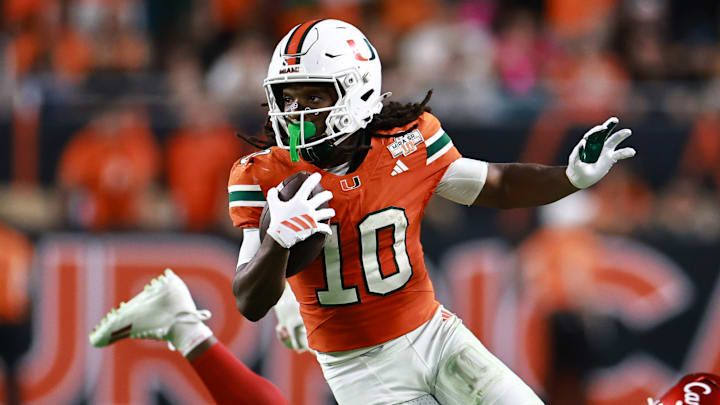The ACC's expanded, no-division model has created a 2025 headache for Miami: the Hurricanes don't play Virginia or Georgia Tech — the ACC's two top teams currently — at any point this season. That absence of head-to-head leverage matters in a race that sends the top two teams by conference win percentage to Charlotte. Also, to make matters worse, Virginia and GT don't even play each other, so a conference loss from either program is not guaranteed.
The scheduling quirk is a feature of the league's 2024-30 rotation that protects 16 rivalries (including Miami-Florida State and Miami-Virginia Tech) and spreads out travel after the additions of SMU, Cal and Stanford. The model inevitably leaves strong teams off one another's slates in a given year.
Through Week 8, Georgia Tech (4–0 ACC), Virginia (3–0) and SMU (3–0) occupy the top rungs of the conference standings; Miami sits 1–1 in ACC play after last week's loss to Louisville. With no chance to settle anything on the field against GT or UVA, Miami's pathway leans on them to lose. If they lose, then it goes to the ACC's tiebreakers: after head-to-head, the league moves to results versus common opponents, then combined opponents' win percentage and, if needed, the Team Rating Score metric from SportSource Analytics. In short, schedule composition and how your opponents finish will matter as much as your own record this year because the regular season isn't projected to do enough for the conference this year.
Miami's remaining schedule and the impact of each opponent
Stanford (Oct. 25, home) is an ACC game and a shared opponent with Virginia (UVA beat the Cardinal 48–20 on Sept. 20). Matching or bettering Virginia's result here helps in common-opponent comparisons.
SMU (Nov. 1, away) is the most straightforward leverage play. The Mustangs are unbeaten in ACC play and a direct competitor for a top-two spot; a road win in Dallas is both a standings swing and a tiebreaker asset.
Syracuse (Nov. 8, home) ties to Georgia Tech, which hosts the Orange on Oct. 25. If Miami and Tech are knotted later, results against the Orange could be compared before the ACC drills down to broader opponent metrics.
NC State (Nov. 15, home) is big: the Wolfpack are a common opponent for both Georgia Tech (GT visits Nov. 1) and Virginia (UVA lost 35–31 in Raleigh on Sept. 6). That gives Miami a clean opportunity to gain ground. But, it should be noted that UVA vs NC State was not considered a conference matchup, so the impact compared with Virginia is practically nullified. This would also be another failure on the ACC's part when it comes to scheduling.
Virginia Tech (Nov. 22, away) is on Miami's slate and was on both Tech's and Virginia's schedules; GT already beat VT 35–20. Again, it’s a shared-opponent lane where Miami can help itself before the formula looks at opponent win rates.
Pitt (Nov. 29, away) figures as a closing-week decider. The Panthers have stacked some ACC wins (3–1) and also face Georgia Tech on Nov. 22, giving Miami another common-opponent data point against a likely bowl team.
Without dates against Virginia or Georgia Tech, Miami loses the cleanest tiebreaker and must instead win its own games while posting favorable comparisons against shared opponents. Miami must also knock off SMU head-to-head and hope Louisville, GT and UVA lose in ACC play. Overall, it is just a messy outlook and Miami might have a better chance to make the CFP than their own conference title game.
